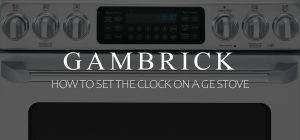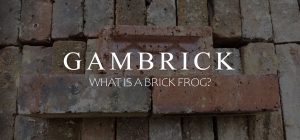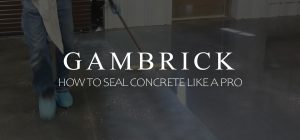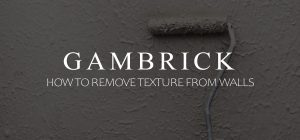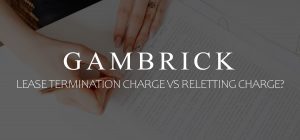How To Buy A House With No Credit
Are you looking for tips on how to buy a house with no credit? If so, you’re in the right place to find a bunch of great home buying techniques.
What better place is there to learn how to buy a home without credit than from the builder. We know just about every trick and method there is to secure financing on home. Many people think you need great credit to get a mortgage or buy a house but that’s not the case. There are all sorts of methods for buying a home with little or no credit and with little to no money down. So how do you do it? We’ve put together a list of our best tips and tricks that potential home buyers can use to buy a home without a credit score.
Learning how to save more money and secure financing can help you in so many ways other than just buying a new home. You may be able to use some of these tips to stop living paycheck to paycheck, pay off your debt, save for your future, and more. That’s why we started this section of our blog dedicated to the financial issues of real estate investing.
There are so many ways to learn how to save money and use financing to your advantage. Continue reading below to learn some of our best money saving tips for buying a new home without credit.
What Is A Credit Score?
The first thing we should discuss a bit is, what exactly is a credit score?
A credit score is a three digit number that measures how well you repay debt. That’s it. It’s a very simple number that tells banks how good you are at paying back the money you borrowed.
It basically says that you’ve had debt in the past, and that you’ve been great, good or bad at paying it back.
There are three major credit bureaus that all have their own credit score. TransUnion, Experian and Equifax. They use credit scoring programs, like VantageScore and FICO, to come up with a score that ranges from 300–850. The higher the number the better you are at paying back borrowed money.
A good credit score is just one part of the puzzle when it comes to borrowing money. For example, if your asking for $500k from the bank and have bad credit but make 2 million a year, you’ll get the loan. But in that same scenario if you have an 850 credit score and make $50k a year, your not getting the loan. Your credit score tells the bank how good you are at paying them back, your debt to income ratio tells them how much of a loan you can afford to pay.
Trust me, an 850 credit score is not proof that your doing good financially. It’s proof that your good at paying your bills on time and managing debt, but that doesn’t necessarily mean your doing better than someone with a lower score. Don’t be confused about what the score means.
Credit Scores measure Debt
A credit score doesn’t measure your wealth, income or employment status. It measures your debt in five ways:
- 35% of your score is based on your debt history.
- 30% is based on your debt level.
- 15% is based on the length of time you’ve been in debt.
- 10% is based on new debt.
- 10% is based on type of debt.
What Credit Score Do I Need To Buy A House?
There’s a lot of bad advice out there when it comes to credit scores and real estate. And we find most of it online from so called investing gurus.
I’m sure you’ve heard the advice, get a credit card to build up your credit so you can buy a house. Finance a new car. Always make your payments on time, never close your accounts and don’t run up those balances. Some of the advise we read is actually pretty good and some is horrible.
Gurus will push you to go into debt in order to build up credit. This pattern starts a death spiral that many can’t get out of. How many of these gurus tell you to stay debt free, save and invest money, build a solid financial footing and look for alternate ways of financing your home?
Even worse, they’ll convince you this is the only way to get a mortgage or buy a home.
But there are other ways of doing things. Smarter ways that don’t drive you into loads of debt just to buy a home. That’s the way most people in America do it and most Americans are flat broke. Believe me, there are much better alternatives.
So what should you do? Simple.
- First, pay off all your debt if you have any, and if you don’t, stay that way.
- Next, put all your credit cards in a shredder.
Never take out another credit card or line of credit again unless you absolutely need and can afford it. Consumer debt is a terrible thing that’s ruining peoples lives while making bankers filthy rich.
Is There A Difference Between No Credit And Low Credit?
Yes. Having no credit score is a lot different from having a low score.
Having no credit score means you don’t have a history of taking out or paying debt. Remember, your credit score is a number that basically represents your debt and how you’ve managed it. If you’ve never taken out any loans then you wont have a credit score. It my opinion, this is a great way to live and manage your finances. However, it does make it a little more challenging to get a loan.
A low or bad credit score could mean a couple things based on the determining percentages we went over previously.
Sometimes a low score just means you don’t have much credit history. If your new to credit, your score could be very low and still not have any derogatory marks on it. This is a good thing because your score will build quickly. We’ve seen people build a 750 – 800 credit score in 6 months when starting from scratch.
However, most of the time a low credit score means you’ve made some mistakes in the past. This is commonly referred to as a bad credit score or bad credit history. Maybe you’ve paid credit card bills late or not at all, defaulted on a car loan, been foreclosed on, have unpaid medical bills, collections, or went bankrupt.
Whatever the reason, a bad credit score will be harder to overcome than if you had no score at all or a low score with no derogatory marks. No credit is a much better thing to have than bad credit. But even bad credit can be dealt with if you know how.
If you have a low or bad credit score, pay off all your debt and pay all your bills on time.
Should You Get An FHA Loan?
When you have no credit, low credit or bad credit, lenders will generally steer you towards an FHA loan.
FHA loans are great programs and much easier to get than a conventional mortgage. We do sometimes recommend clients apply for one, however, they do have some drawbacks.
These loans are government backed and designed to help first time buyers with bad or no credit to get a mortgage. The requirements and deposit are a lot less than your standard mortgage. Most of the FHA loans we’ve seen were 3.5% down and you could even have bad credit.
On the surface, FHA loans seem like a great idea. What could be wrong with a loan program designed to help first time home buyers that have bad credit and a low down payment? The bad news is that they end up being more expensive in the long run because of extra fees and a thing called MIP or monthly insurance premium. For a $250,000 house, you could pay $35,000 more when you take out an FHA loan compared to a 15-year conventional mortgage. That’s a lot of money your throwing away.
What’s MIP?
Buyers who use an FHA-backed mortgage have to pay a monthly insurance premium (MIP). This fee ranges from .80% to 1.05% of your total mortgage.
Unlike private mortgage insurance (PMI) that comes with conventional loans, MIP doesn’t go away once you’ve reached 20% equity. In other words with an FHA loan you have to keep paying MIP payments until the loan is totally paid off.
MIP stays on for the life of the loan. That could be 30 years of MIP payments. It’s a crazy amount of money to throw away over time. The only way to get rid of it is to refinance the FHA loan into a conventional loan or pay the loan off entirely.
The reason we recommend getting an FHA loan despite the higher payments is because of the refinance option. Getting an FHA loan and paying it off on time for a few years will make it a lot easier to get a conventional mortgage. In this case we think it’s worth a few years worth of MIP payments.
FHA mortgages are popular because they have a lower minimum down payment, 3.5% instead of 5%. But if you don’t have a credit history, you may have to put down closer to 10-20%. Which is what we recommend anyway.
Why Do We recommend FHA Loans If They’re More Expensive?
Well, the way we handle an FHA loan is a little different than most.
They’re great loan programs because the credit requirements are so easy to meet but they’re end up being so expensive because of the low down payment. That may seem like a great thin at first, but over time it ends up biting you in butt.
What we recommend to our clients that have bad or no credit is to use the lower credit requirements of an FHA loan program but still put down the 20%. There are still some fees attached but they don’t amount to much. The real issue is the PMI and you’ll be avoiding this by putting more money down. It’s the best of both worlds and makes an FHA loan a better long term.
Try Small Local Banks Or Credit Unions
In our experience smaller banks and credit unions are more willing to work with a buyer that has no credit. Bigger banks can offer better deals to the masses so small banks and credit unions have to loosen their requirements a little. Being a long time customer can help you out with a local bank, especially if they do manual underwriting.
If you have an account at a credit union or local bank, call their mortgage department to ask about your options.
It may take a few tries before you find a willing lender so don’t give up.
How Can You Get A Mortgage Without A Credit Score?
A credit score tells a lender a history of your debt. How much you’ve had in the past, what you have now, what kind it is and how good you’ve been at paying it all back. The vast majority of homeowners buy a home by using their credit score. But there are other ways.
Manual Underwriting
While getting a mortgage without a credit score is harder to do and a bit more work, it’s not impossible. Your first step is to find a lender who does manual underwriting.
Manual underwriting is a hands on deep dive done by an actual human into your finances to determine ability to repay debt. You’re applying for a mortgage and they want to find out if you can repay it.
The majority of mortgages that are applied for using a credit score are determined by a computer algorithm. Lenders each have their own set of factors and computer says yes or no based on the information you give it. A final answer is generally given by a real person but they only look at the applications a computer says yes to.
As you’re going through the manual underwriting process, you’ll have to submit lots and lots of documents. Things like proof of income, a history of rental payments and other bills, a list of assets and any debts and a current financial statement.
How can you get a mortgage through manual underwriting?
The first thing you need to do is find a lender that actually does manual underwriting. Don’t waste your time going from bank to bank applying for loans if they don’t give out the loan you need. Call banks and ask.
Once you have a bank that will manually underwrite a mortgage, ask them for a list of documents they’ll need. Take your time and get together whatever paperwork they want.
When your paperwork is complete, call and make an appointment with a loan officer at the bank. Let them know you want to apply for a manual underwriting because they’ll have to block out enough time for the meeting.
Don’t expect an answer in 5 minutes like a computer can give you. A manual underwriting isn’t using a program to say yes or no and isn’t relying on a credit score. The loan officer will review your entire financial situation and make a decision.
In my opinion this is the way all loans should be given out, and if they were, there would be a lot less foreclosures. Simply replying on a credit score is not an honest evaluation of a persons finances and ability to pay back a debt.
1. Bring Documents
The first step will be providing all of you documentation to the broker. You’ll most likely need to show verification of your income for the last 12–24 months, financial statements showing all your assets and major debts, identification, and your monthly expenses. These expenses commonly include:
- Rent
- Utility bills
- Phone, cell phone or cable bills
- Insurance payments
- Child care or school bills
- Medical bills
The more evidence you can provide of your on time payment history, the higher your chances of qualifying for your mortgage. Even though you may not be paying off loans on time it’s good to show your paying off other expenses on time every month.
2. Have a big down payment
We always recommend a down payment of at least 20%. This amount down reduces the lender’s risk and shows your ability to handle money. It also eliminates PMI payments. The old fashioned method of saving for up to buy a home worked much better than today’s model of over leveraged buyers.
3. Stick with a 15-30 year conventional mortgage
Stay away from anything subprime and absolutely no gimmicks. A basic 15-30 year conventional mortgage is what we like to see.It’s worked for generations and things only got bad as home buyers moved away from using it.
Try to get your monthly mortgage payments to be no more than 25% of your take home pay.
How to Get a Mortgage Without Credit
Not every lender offers manual underwriting and what do you do if you can’t find one locally that does? Use of the other methods for buying a home without a credit score.
Lease Options
Buying a home with a lease option, or lease with the option to buy, is one of our all time favorite methods for buying a home.
Lease options are great because they’re basically a rental with the option to buy the house if you want to later.
A lease option contract locks the property up for a set price. For example, let’s say you lease option a home worth $200,000 for 5 years. After 5 years if the home is only worth $180k, you don’t have to buy it. Now let’s say after 5 years that home is worth $250k. The seller has to sell it to you for the original $200k you agreed upon.
Another great thing about a lease option is that the payments you make each month get applied to the principle. This means your rent payment every month aren’t being wasted if you end up buying the home.
The lease is basically the same type of lease you sign when you rent an apartment. The only difference is that a lease option let’s you buy the home at the end rather than just continuing to live there.
We recommend you negotiate a lease option with the option to extend the term at at the end with the same terms. In other words, in that same example, at the end of the 5 years, we’d like to have an option to extend the lease for another 5 years at the same rate and payment with the exact same sale price and without a penalty.
We also highly recommend negotiating into the lease the right to sublease the home. Include the option to rent it out for more money if you want to. Negotiate an open ended option that also allows for short terms rentals and Airbnb.
Get A Partner
Buying a home with a partner makes things a lot easier.
Buying real estate with a partner can make it easier to get a mortgage because there are two of you to split expenses and guarantee the mortgage. However, it all depends on who the partner is. If your partner has bad credit and makes no money then they won’t help you much. But if they have a good credit score and other financials then they can be a big asset.
A co-signer only helps you out if they’re someone that can cover the loan in the event you stop paying. But a partner pays half the mortgage the entire term of the loan so it makes it easier on you every month.
Just because you have a partner doesn’t mean you have to live together. Many people invest in real estate just because they want the appreciation of the home. You can work out a deal with your partner however you like aside from what you tell the bank. All the bank cares about is if the two of you can pay back the loan.
Another way to structure a deal like this is to live together. A roommate can be nice because you not only split mortgage payments but also all your monthly bills.
Get A Co-Signer
I you have a co-signer then banks will be much more likely to work with you. A co-signer is taking responsibility for the loan if you don’t make the payments. They’re essentially an insurance policy for the bank. If you don’t pay the loan they go after your co-signer.
However, the co-signer has to be able to qualify for the loan. If you find someone that’s broke and has bed credit then they won’t help you much. In reality, putting them on the application may actually hurt your chances.
I know a lot of real estate investors that for one reason or another have money but no credit. And they all use a co-signer. If you can find a good one then you’ll get your mortgage without much trouble.
Another big benefit to having a co-signer is that as long as they have a credit score you can use just about any bank. If they don’t have a credit score either than your back to using a manual underwriting.
Find An Investor
This may be hard to believe but there are plenty of real estate investors out there looking for young entrepreneurs to work with. They’ve got money to invest but generally don’t want to spend all their time and effort finding deals. That’s where you can come in. Finding an investor is a great way to buy a home without credit. If it’s a great deal then there’s a really good chance they’ll finance it for you or at least will help you get financing.
This is commonly called private money.
Because investors aren’t going through a bank they don’t necessarily care about your credit score. It’s all about the deal. If they can make money and you have a relationship with them then there’s a good chance for you to get funding.
These types of deal generally aren’t for people who want to live in the home but sometimes they are. There are investors out there that’ll finance a home as long as you pay the upkeep and rent so that they can get a cut of the appreciation.
Sometimes buying a home without credit requires a little creativity.
Down Payment Assistance Programs
Depending on how much you make and some other factors, you could qualify for a down payment assistance program. There are over 2000 of them nationwide that help out first time home buyers with low interest loans, grants, and tax credits.
Home buyers that use down payment assistance programs save an average of over $15,000. Do a search online for programs in your area or talk to a local realtor. It’s simple to apply and if you qualify they can be a big help.
Although these programs will help you with the down payment, you’ll still be required to pay the monthly mortgage, property taxes, all the bills and homeowners insurance.
Having a big down payment makes it easier for a manual underwriter to give you the loan.
Research The Programs
Many States had great programs offering as much as $15,000 in down payment assistance grants to first-time homeowners who purchased foreclosures. This was around 2013 after the real estate crisis but those programs are still around today.
It takes some research and paperwork, but in return you’ll get $15,000 in down payment assistance. best of all this money is often times considered a soft loan that gets forgiven a little bit each year. Each program varies though so make sure you read up on your particular loans terms.
Be Solid Financially
Even if your not making much money you can still save and work hard to put yourself into a solid financial situation. When you go to buy a house, no matter what age you are or what your credit, banks are going to look into your finances. These include your financial situation and credit. There are options to buy a home even without credit but if your finances are bad then it’ll be next to impossible for you to get a loan.
There’s a lot that goes into this but here are the two biggest factors.
- No matter what you make or how much you have saved, you should try your best to live debt free. Your debt to income ratio is a huge factor when it comes to securing a loan. Even if your only making $30,000 a year you should work hard to be debt free so as much as that income as possible can be applied to the loan. The way the ratio works is how much free cash you have after paying your bills, not the total. A person making 30k a year with no debt can actually be in better shape financially then a person making 60k a year with a mountain of debt and bills.
- I know how hard it is because I’ve been there. When you don’t have credit established getting a loan for anything is hard. Live below your means and save more money. Both of those things are hard to do but with more money more options open up to you. Living below your means when you don’t make much money isn’t easy, but it’s the only way your gonna save enough money for a deposit. Even with an FHA loan we recommend having 20% for the down payment and additional costs like moving, cleaning, furniture etc. If you don’t have good credit to rely on then you really have to save.
Staying out of debt and living below your means are both crucial for long term financial success.
Shop For A Good Loan
Just because you don’t have the best credit doesn’t mean you should settle for a crap deal. If your solid financially then there’s someone out there that’ll work with you. I’d much rather work with someone who has a strong financial statement and big down payment then someone weak financially with a great credit score.
Credit scores are a look into the past. They show a person who’s been good at paying off their debts, in the past. But they don’t predict the future. For my deals, I want a person who strong today and has a good chunk of money in the deal. That large 20% or more deposit says a lot more for me than just a credit score.
Work with your banker. If you don’t like the deal then negotiate. Ask them what it’ll take to get a better rate and then do what they ask. Maybe you need collateral, a bigger down payment, less bills, or a better job. It’s work to get a mortgage without credit but it’s not impossible and if you ask me, it’s the best way to do it.
Offset The Mortgage Costs
There are a few ways you can offset the cost of the mortgage or even pay for it entirely if your creative.
Here in NJ, storage space is expensive. There are storage centers all over the place and they’re all really expensive. A one car garage easily gets $150 – $200 a month if you rent it out. If you buy a home with a garage then renting it out is a great way to make some extra money.
Airbnb or renting a room long term are other ways to offset your mortgage costs. Unless you can section off the room your renting with an Airbnb I wouldn’t recommend letting strangers into the house but renting a room to a friend or family member can help a lot with the bills. Most people we deal with that are buying starter homes are renting some portion of it or buying it with a partner.
Unlock the power of the internet. Now that you have a home it’s a great time to start a home based business. There are so many ways you can make money online. I won’t get into all of them here but if I were you I’d start a blog, a Youtube channel or write article on Medium. You can do all those things with very little money and they all have the potential to make you rich some day.
If you can prove to the underwriter that buying the home makes sense and will actually earn you some money they may take that into consideration. You’ll probably need proof that the numbers you want factored in will be real income, but that’s doable. You can make deals and get leases signed on the condition you close on the house which can be applied to the loan as possible income.
Buy An REO Property
You may have heard that you can get a good deal on a foreclosure but it’s hard to do an you need a lot of money. But what you may not have heard is that there are stages of a foreclosure.
- Preforeclosure. We don’t recommend you buying a home at this point.
- Foreclosure. These are generally sold at auction right on the court house steps or somewhere in the court house. We don’t recommend buying here either.
- REO. This is when the bank or lender takes possession of the house back from the lender. We recommend buying at this stage.
When you buy an REO property your actually buying a home that was foreclosed and is now owned by the bank. So your dealing with the bank itself. You don’t have to deal with any of the actual foreclosure process. The banks done all that for you. Any headaches that were necessary during the foreclosure process is already done. You buy from the bank just like any other seller. The difference is that the bank doesn’t want to be involved in real estate. They sell REO properties at a nice discount every day just to get rid of them.
Banks are calling investors all the time to get rid of REO properties. They don’t want them on their books. If you contact a bank that does manual underwriting and has some REO properties for sale you can lump it all into one deal. Believe me, there are bankers who would jump to sign a loan and get rid of an REO in one deal.
Try Habitat For Humanity
Habitat for Humanity is a global nonprofit housing organization that works in local communities across all 50 states. They help people build their own homes with the help of volunteers and secure an affordable mortgage.
The program is designed for people with really low incomes and bad or no credit. They get state and local funding that makes the loan very small with monthly payment as low as $500 in some cases. If you fall into the category then they may be able to help you buy a home with no credit.
You have to attend a few classes, which include credit counseling, before you pick a lot to build on. You may also be required to work hours in their office, resale store and actual construction sites.
Housing For Humanity is limited to people who don’t currently:
- Qualify for conventional financing
- Already own real estate
- Have owned real estate within the last three years
In order to qualify you have to meet a few requirements.
- Prove a need for housing. You must currently live in poor conditions or have rent that exceeds 35% of your income.
- Be able to pay. You a stable history of income and employment, a good record of paying rent and utilities on time, and enough money to cover closing costs.It’s not unlike getting a mortgage only easier.
- You have to work. Each applicant has to complete at least 400 hours of volunteer work towards building Habitat homes.
According to Habitat’s home ownership FAQs page, while they do pull credit history for applicants, there’s no minimum credit score required for approval.
Instead, the Homeowner Selection Committee considers the entire financial situation of an applicant and looks for those who have proven ready to accept the responsibility of home ownership.
This is kind of like what a manual underwriter does. They don’t want to approve applicants unless they can actually afford the home. It’s not a free homes, it’s an assistance program so you’ll still have to pay the eventual mortgage.
Summary: How To Buy A House With No Credit
It’s not as easy to buy a home without a credit score but it’s not impossible either. And in my opinion, it’s the best way to do it. Living debt free is the best way stay on solid financial ground. Gurus and bankers will try to talk you into taking out credit cards and car loans to build good credit. But all that does is make them rich. They tricked an entire generation of Americans into over leveraging themselves which caused an insane amount of foreclosures and outstanding consumer debt obligations. Break away from this horrible cycle of stupidity and get a loan without using a credit score.
Being smart with money has all sorts of benefits we know you’ll enjoy.
If you have any questions or comments e-mail us any time. We’d love to hear from you.


